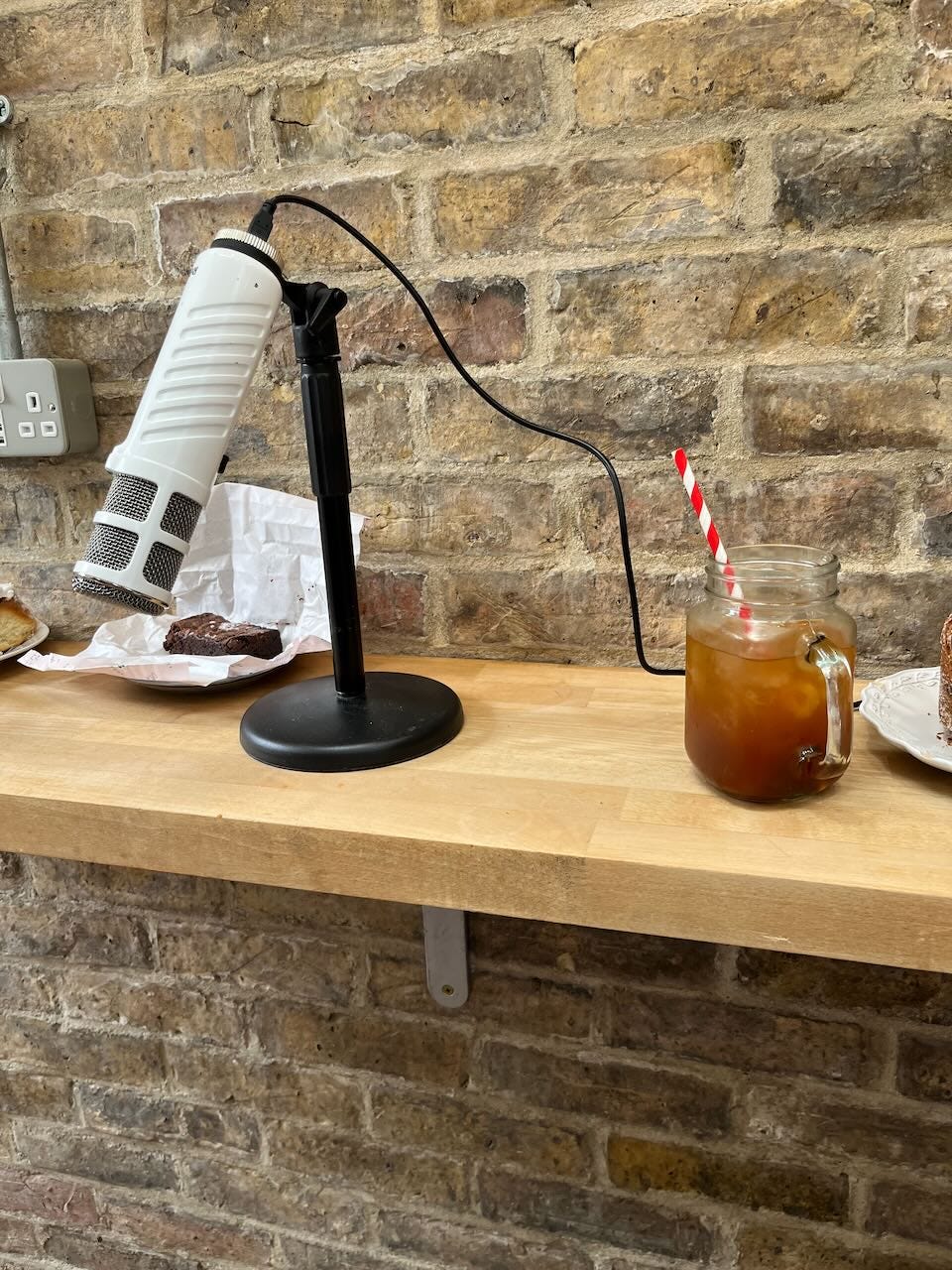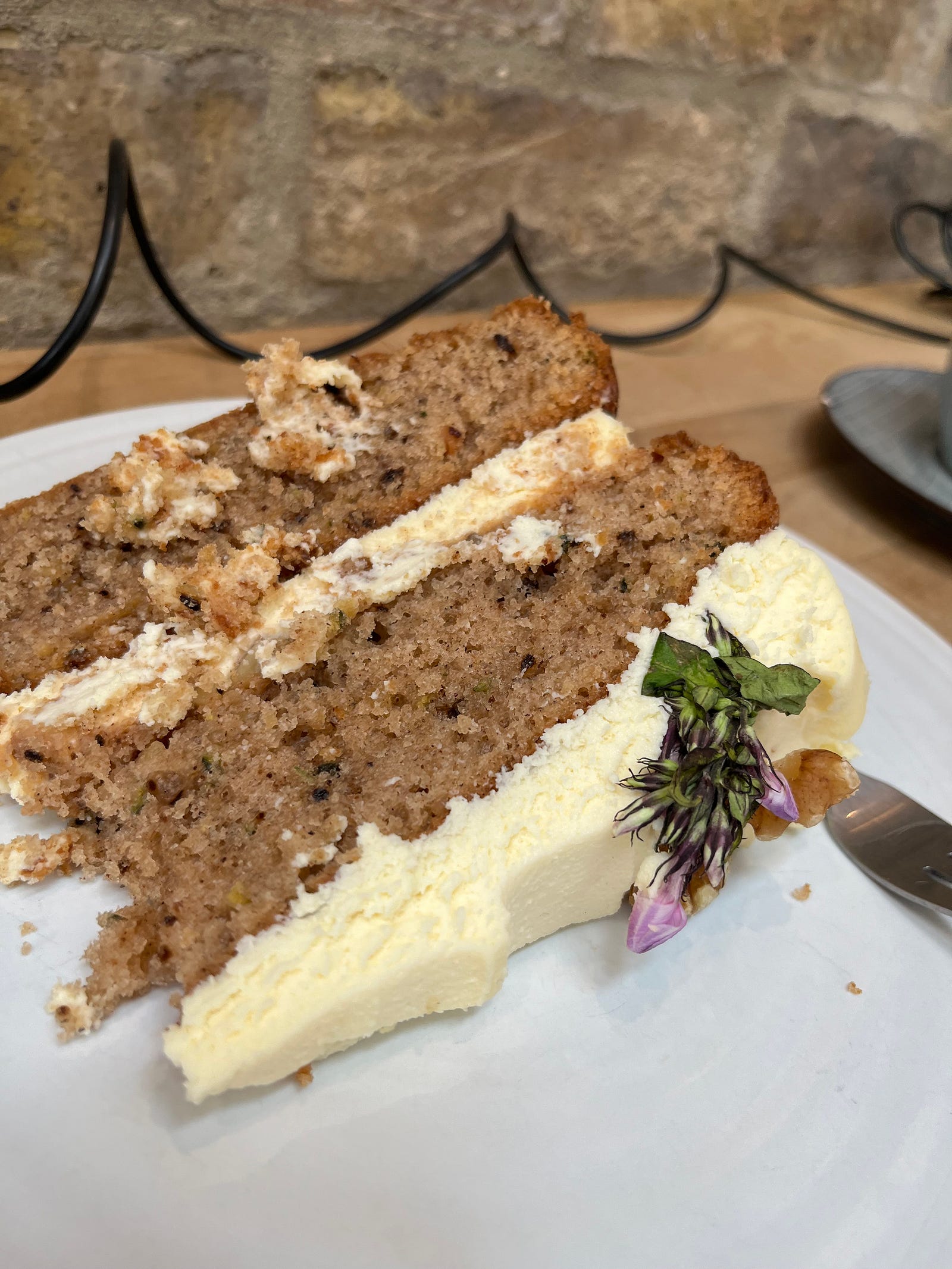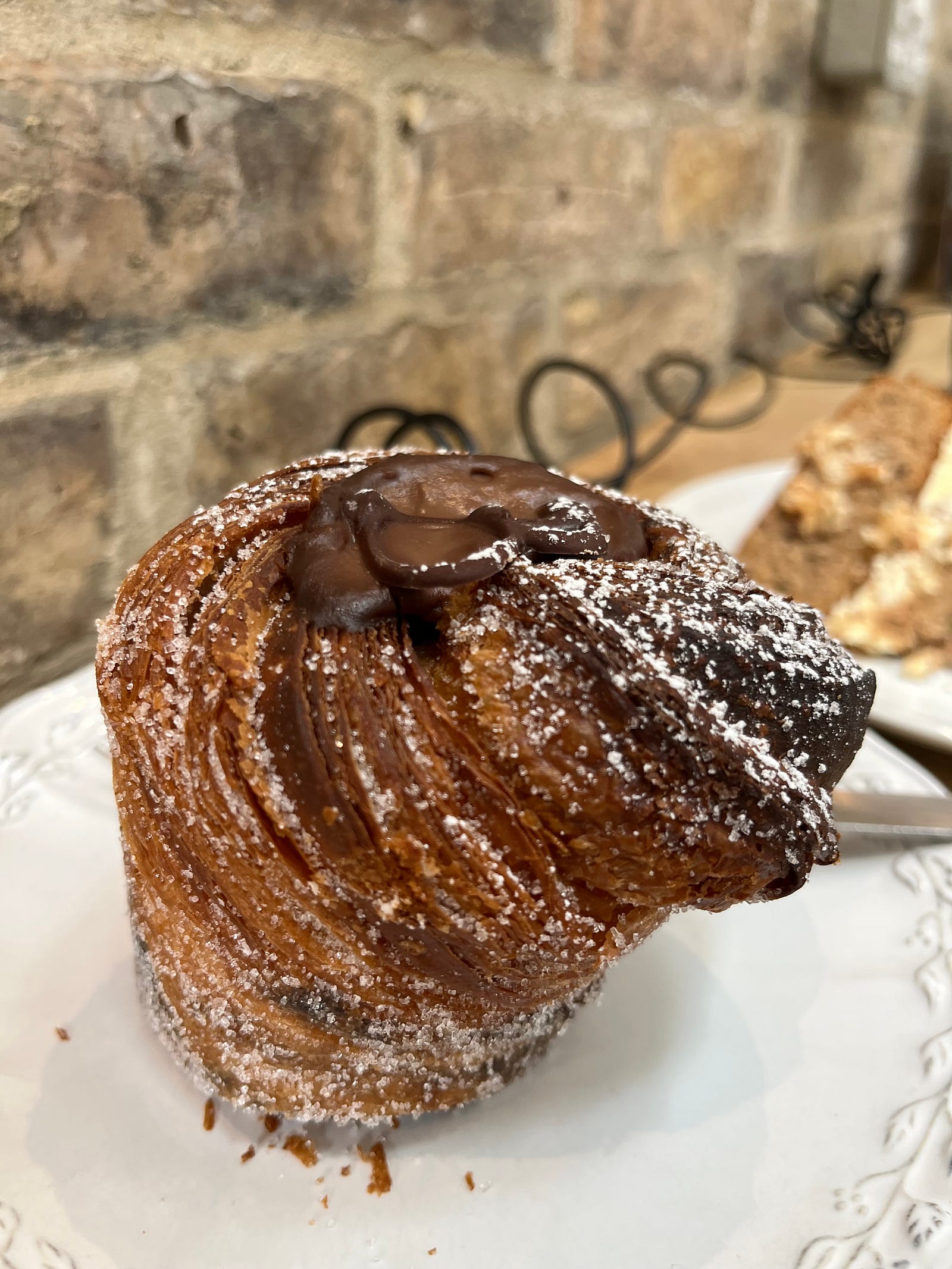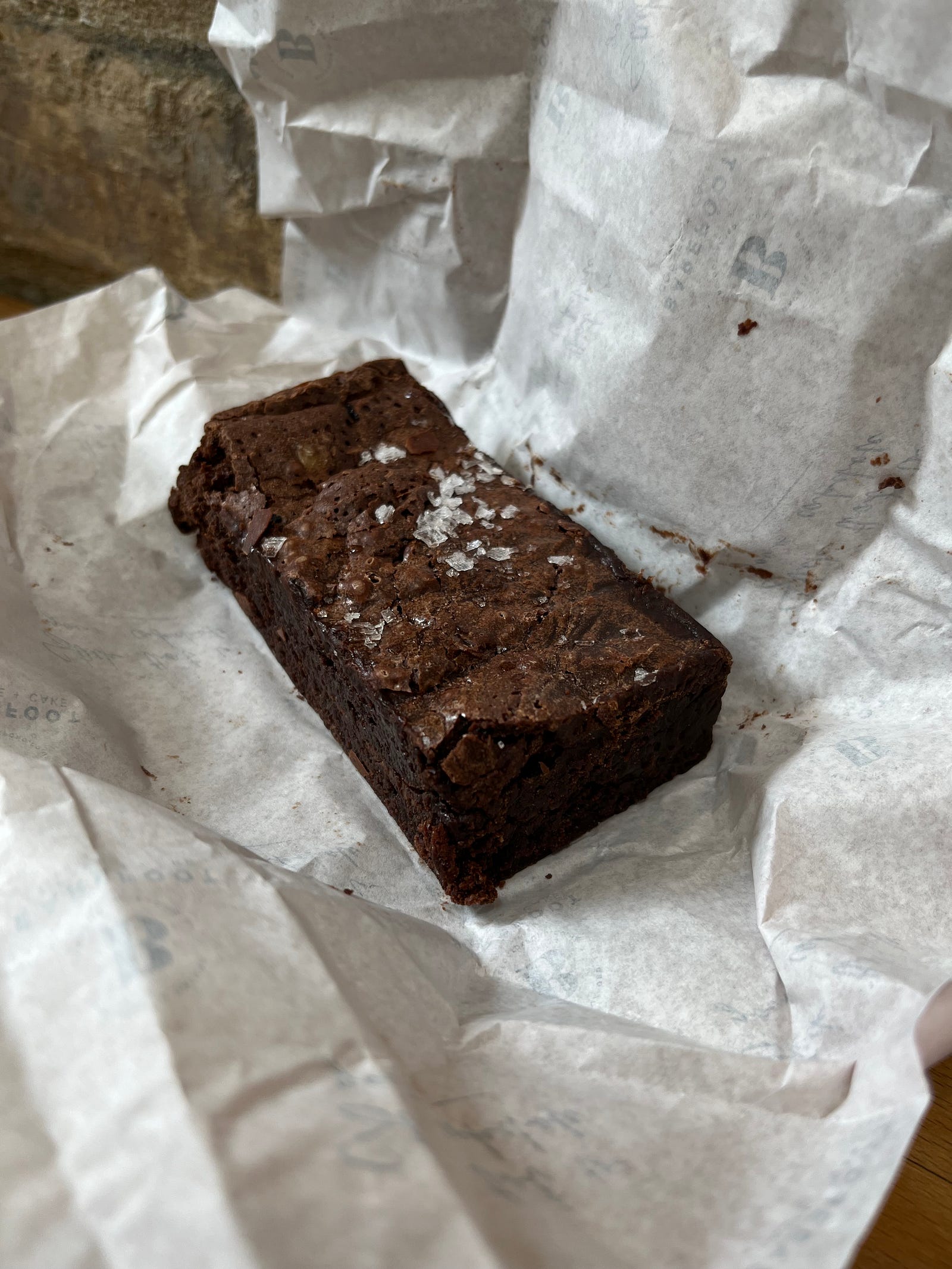The Devil, complete with a set of black wings, is sat at the end of the row having a chat with an audience member as we arrive for the opening night of Oliver Lansley’s ‘Immaculate’. The intimate space of the Michael Pilch Studio has been put to effective use – the set is a mixture of camp and satanic: a red crucifix carpet contrasts purple glittery curtains, and a dominatrix whip finds itself in Mia’s cosy living room. The perfect balance is struck between these elements over the rest of the play, which is both ridiculous and witty, light-hearted and serious.
The play portrays a modern-day Second Coming in which Mia (played by Letty Hosie) is chosen to carry God’s child. Mia hasn’t had sex in eleven months and her confusion is only heightened when she is visited by both the angel Gabriel (Isaac Wighton) and Lucifer (Leah Aspden) in quick succession, each of whom claims the baby to be their own. Meanwhile, the narcissism and toxicity of Mia’s relationships with her ex-boyfriend Michael (Cosimo Asvisio) and her best friend Rebecca (Millie Deere) feel painfully relatable. The performance is fast-paced, witty and its self-aware humour offers something different to Oxford’s usual student productions.
Mia stands over the angel Gabriel in a dominatrix Virgin Mary dress (complete with crucifix stockings, a halo and leather whip) as he politely and awkwardly acts as God’s advocate, trying to explain that Mia is carrying God’s baby. Gabriel’s role as a messenger was carried out brilliantly by Issac Wighton. Wighton’s one-liners were the perfect mixture of critical and entertaining, with his character helpfully pointing out that, in reality, proof of the Second Coming ‘negates the whole faith thing’. The dynamic between the cast members was refreshing and natural, which only made Gabriel and Lucifer’s back-and-forth comments and their ABBA-style dance routine funnier.
The decision to use academic gowns embroidered with glittery crucifixes was a great touch, as was Mia’s casual transition into her demonic-cum-holy dominatrix outfit, with socks protruding through her t-shirt in a lumpy baby-bump. Each of the characters was warmly received by the audience and many of the jokes resonated with each person in some way: an older couple sitting in front of us particularly enjoyed the jokes about motherhood, and the petty arguments between Mia and Michael, which more closely resembled a mother sparring with her spoilt child than a pair of ex-lovers. The breaking of the fourth wall with Michael’s ‘Unreliable Narrator’ t-shirt and the cast’s indication of a flashback in the second act, repeating ‘this is a flashback, that happened in the past’ as they rearranged the set, did not detract from the overall humour.
Jo Rich’s performance as Gary Goodman, a cringe and self-obsessed ex-classmate, was particularly hilarious. His (impressive) dance moves began the second act with a bang and his jarring comments and hand gestures made me physically cringe (in the best way possible). Millie Deere also brought a new dynamic to the stage. Her whining and melodramatic speech created the perfect dynamic with Michael, and Cosimo Avirisio never missed the mark with the character’s thickness and stupidity.
Mia’s informal relationship with the audience was at its best when she talked more seriously about her situation, reflecting on the way in which her body had been used by a higher power against her will. At the end of the play, she reminds herself of her ability to make her own choice, ultimately deciding that the possibility of having a child, whether it be God’s, Satan’s or Gary Goodman’s, perhaps isn’t so bad after all.
Katie Peachey and Darcey Williams (co-directors) should be credited with the excellent cast dynamics and attention to detail in the set and costumes. In the words of Garry (Gazza) Goodman, I would like to ‘Spread the word!’ about how impressive and well-executed this performance was and would also be interested to know where I can get a matching cushion featuring Meryl Streep as the Virgin Mary.







